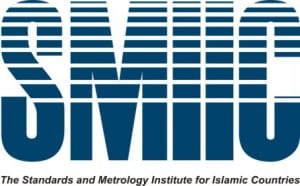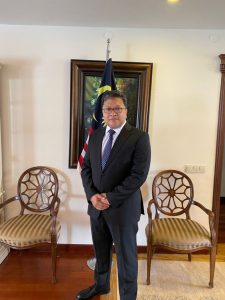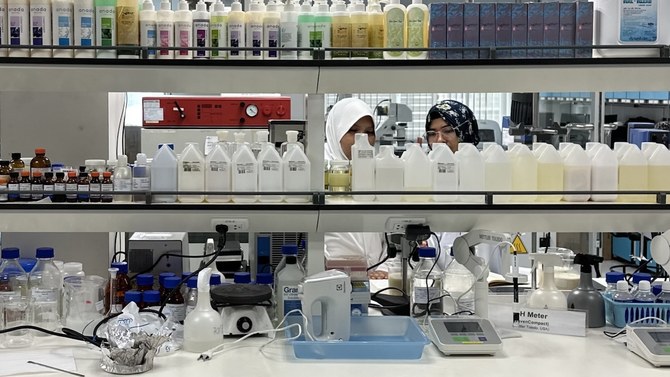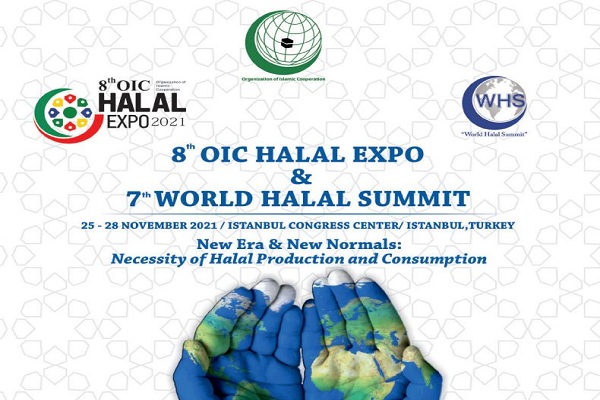Andadolu Agency (AA) – The demand of non-Muslim countries for halal products increased with the COVID-19 pandemic, Zafer Soylu, the head of the Halal Accreditation Agency (HAK) in Turkey, said Sunday.
“The importance of safe, healthy, clean food has emerged with the pandemic. Especially in the Far East, non-Muslim consumers have started to show high demand for halal-certified products,” he told Anadolu Agency (AA).
Soylu said that now the halal certification is used not only in areas related to food but in the service sector as well.
 Pointing out that Turkey’s halal standards are based on 16 guidelines published by the Organisation of Islamic Cooperation’s (IOC) Standards and Metrology Institute for Islamic Countries (SMIIC) in this field, Soylu said: “These standards seem to contain only Islamic and fiqh rules, but the other aspects of the work we are talking about should not be forgotten. Hygienic, clean, healthy products, not giving false and misleading information to the consumer and even quality are within the scope of halal standards.”
Pointing out that Turkey’s halal standards are based on 16 guidelines published by the Organisation of Islamic Cooperation’s (IOC) Standards and Metrology Institute for Islamic Countries (SMIIC) in this field, Soylu said: “These standards seem to contain only Islamic and fiqh rules, but the other aspects of the work we are talking about should not be forgotten. Hygienic, clean, healthy products, not giving false and misleading information to the consumer and even quality are within the scope of halal standards.”
“SMIIC standards include hygiene, cleanliness and health aspects as well as fiqh dimensions,” he said.
Soylu stated that they saw an increasing interest in halal standards by non-Muslim countries and their populations.
“There was a demand for all halal-certified products before the pandemic, this demand intensified now as the importance of such factors came to light with the pandemic.”
Pointing out that halal certification mainly emerged and became widespread in non-Muslim countries, Soylu said: “People living in non-Muslim countries have resorted to halal certification in order to feel safe. Most of the applications to us are from non-Muslim countries.”
Soylu further pointed out that an international system should be established for mutual recognition of halal certificates issued according to the 16 standards determined by SMIIC.
“International trade should run on the basis of these standards. The halal certificate issued in one country must be valid in other countries under normal conditions.”
“For this, there must be an accreditation mechanism. It is important that halal certification bodies issue certificates according to the accreditation statuses given by the accreditation institutions recognized by the SMIIC. Documents must also be acceptable all over the world. Unfortunately, today, different countries have different halal standards and halal certification approaches. Different accreditation and inspection systems create costs for our exporters,” he explained.
Saying that many food exporters get different halal certificates for different countries, and the cost is very high, Soylu noted: “If you cannot establish a mutual recognition mechanism and provide mutual recognition of halal certificates, both the cost for the producers increase and the consumers hesitate about which product is halal and clean.”
The global halal market – mostly catering to Muslims but also attracting those who prefer thoroughly inspected products – currently stands around $7 trillion, according to previous statements.
The field includes many sectors such as cosmetics, chemical and cleaning products, agricultural products, food, energy, tourism and finance.
Turkey, which is home to a large population that identifies itself as Muslim, strives to be a pioneer in this field.



